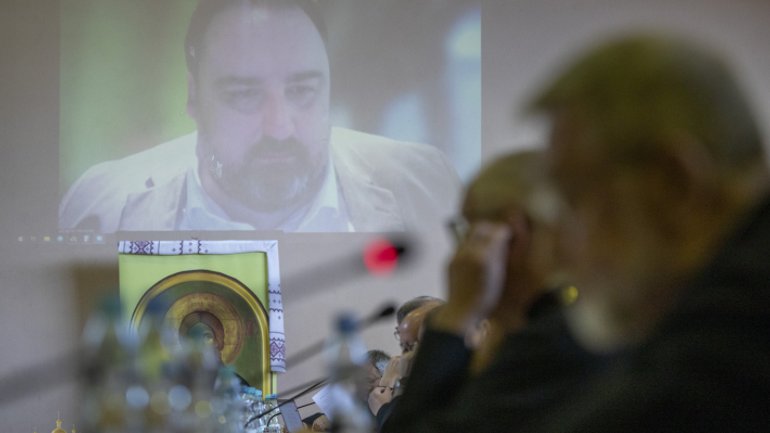Yevhen Hlibovytsky tells the members of the Synod of Bishops of the UGCC about the upcoming demographic challenges

This is reported by the UGCC Information Department.
Yevhen Hlibovytsky noted that Russia's modern war against Ukraine has a pronounced demographic dimension.
"The demographic situation will be a key point in curbing the development of Ukraine after the war. There will be a shortage of not only employees but also consumers. The business sector will suffer the most from this. The state will not have a solution to this crisis. Therefore, the business can take it up." The leaders of the Church have their special share of responsibility for this.
The speaker noted that the decline in the number of Ukrainian people is caused by several factors.
First of all, it is the decrease in the birth rate, which we can observe in the example of the number of young people. Summing up this point, Yevhen Hlibovytsky has noted that in 10 years in Ukraine there will be a decline in the number of young people aged 25-29. Another factor is the total depopulation of certain regions of Ukraine. Today it is happening because of war and danger to life. However, Ukrainian sociologists observed this phenomenon even before the Russian Federation started the full-scale invasion. The reasons for this were labor migration, relocation to large cities, and so on.
The expert summed up that in 2030 the population of the Ukrainian state will be 30 million people. "Reducing the population will lead to an additional burden on people. Fewer people will have to pay for larger government requests. This means an increase in taxation. However, it is worth adding to this the lack of trust of Ukrainian society in state institutions. In 2030, there will be more than 2 people who do not work per person who works. On the one hand, this will mean an increase in poverty. On the other hand, there is an additional burden on the social sector, which will be forced to develop."
Thus, Ukraine will need a lot of people in the coming decades. According to Yevhen Hlibovytsky, this problem can be solved in several ways: "migration replacement", combating threats to life and increasing its duration (reducing mortality), and increasing the birth rate.
At the same time, we should not forget that "as a result of the disasters of the XX century, we have acquired a "traumatic culture". While life expectancy is growing in European countries, Ukraine remains at the same level. This means that we are losing our lives due to the trauma of the past." "Ukraine suffers from an active form of PTSD," the speaker said.
Answering the question about what the church can do in such a situation, Yevhen Hlibovytsky identified several areas for bishops to think about:
o Countering injuries and stress;
o Search for a new model of cooperation between the church and business and entrepreneurs;
o Pastoral care of the family — distribution of roles in the family, upbringing of boys, the role of women in modern society, etc.;
o Support of Ukrainian Christian life outside of Ukraine-search for places of settlement for Ukrainians, monitoring the migration wave of our time, helping Ukrainians abroad.
In conclusion, the bishops of the Synod of Bishops of the UGCC had the opportunity to ask their questions to the speaker, and His Beatitude Sviatoslav thanked Yevhen Hlibovytsky for his informative report.
On July 7-15, Przemysl is hosting the Synod of Bishops of the UGCC, the main theme of which is "Synodality and Conciliarity: Experience of the UGCC".









